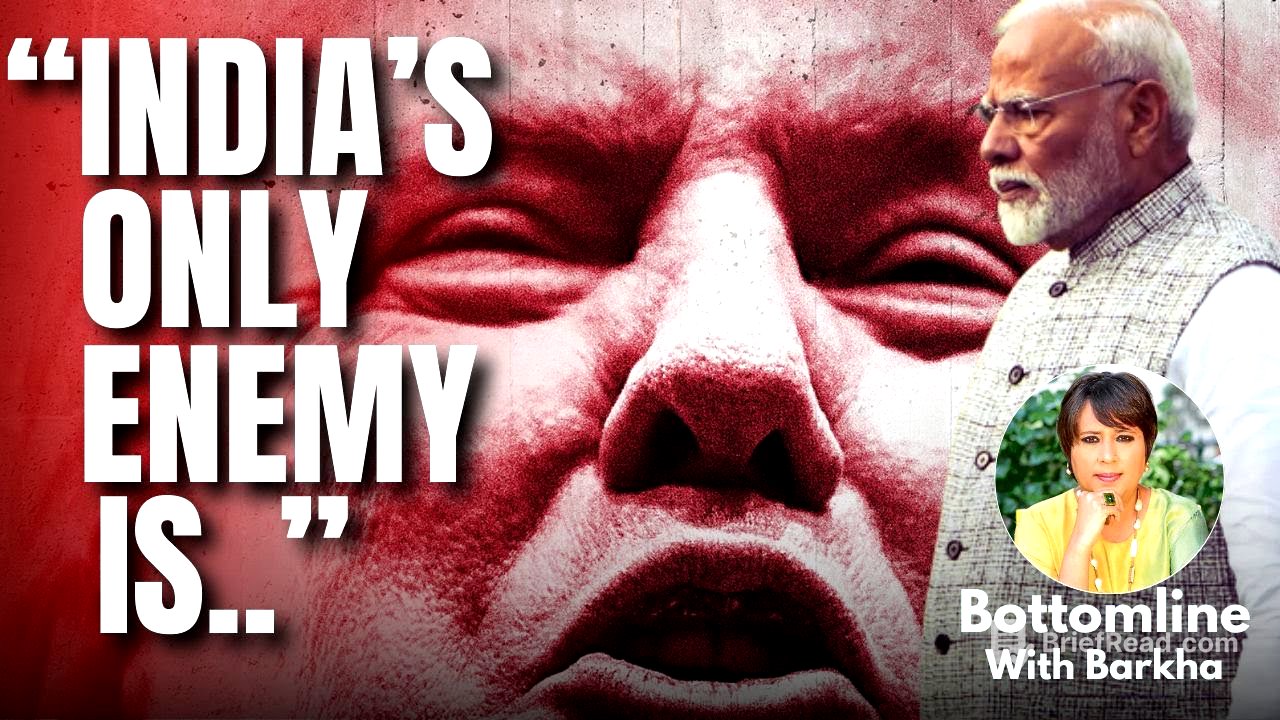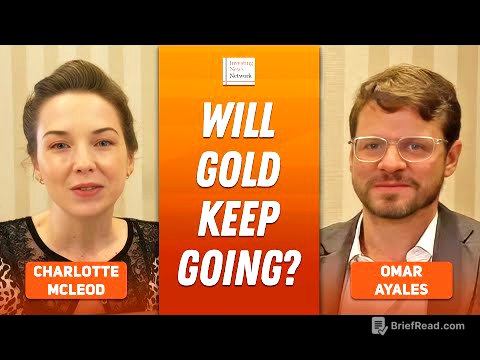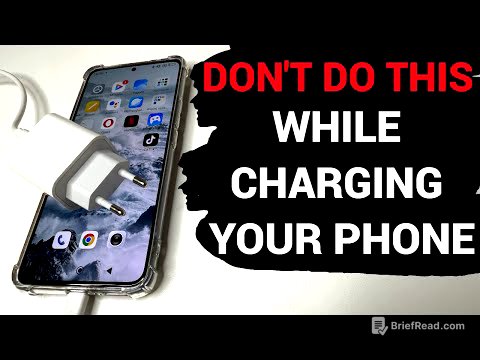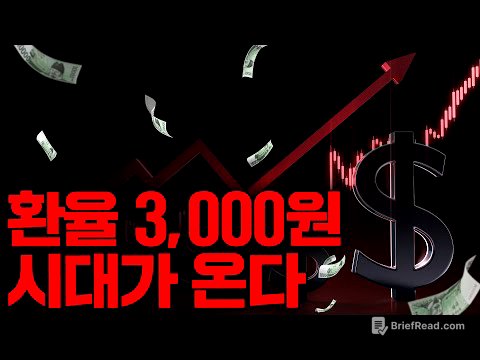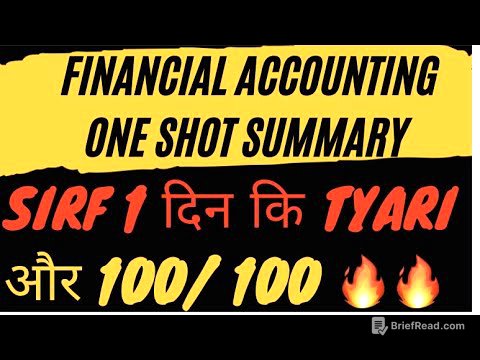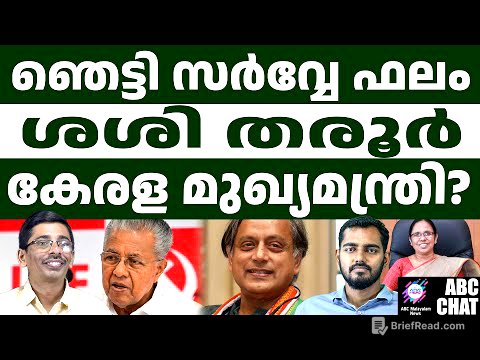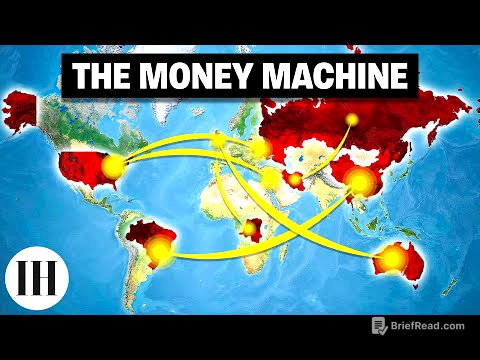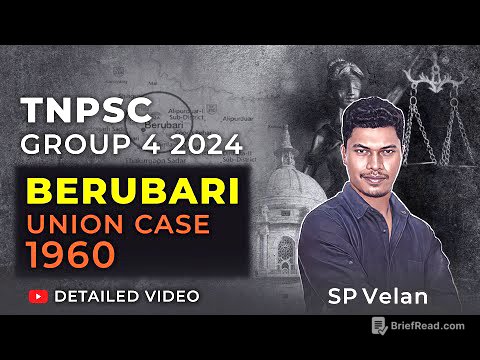TLDR;
This YouTube video from Mojo Story discusses the implications of the Trump administration's new H1B visa policy, which includes a $100,000 annual fee. The discussion includes the potential consequences for Indian professionals, the perspectives of various experts, and the broader impact on India-US relations and the global landscape.
- The new H1B visa policy, requiring a $100,000 annual fee, is perceived as potentially targeting India, given that a significant percentage of H1B beneficiaries are Indian.
- Experts debate whether this policy presents an opportunity for India to focus on domestic innovation and job creation or if it poses a significant challenge to the aspirations of Indian professionals seeking opportunities in the US.
- The panel explores the potential long-term effects on America's talent pool and its global standing, as well as the broader implications for democracy and globalization.
Introduction: New H1B Visa Policy and India-US Relations [0:19]
The video begins by addressing the recent announcement of a dramatic change in the H1B visa policy by the Trump administration, which includes a $100,000 annual fee. This announcement is coupled with comments from US Commerce Secretary Howard Lutnik, suggesting that foreign workers should prove their value or return home. Prime Minister Modi has responded to this situation by emphasizing the need for India to reduce its dependency on other countries. The host, Barkha Dutt, introduces the topic as a potential setback in India-US relations and raises questions about the consequences of this policy shift.
Expert Panel Introduction [3:39]
Barkha introduces the panel of experts: Gurcharan Das, an author and columnist; Chitra Subramanyam, an investigative journalist and policy analyst; Prasad Dvuri, an entrepreneur and former H1B visa holder; and Mjie Puri, a veteran diplomat. The panel aims to decode the implications of the Trump administration's H1B visa policy changes and its impact on India.
US Officials' Statements on H1B Visa Changes [4:35]
A clip is played featuring Howard Lutnik and others discussing the H1B visa program. Lutnik states that the increased fee aims to ensure that only highly skilled and valuable individuals are hired, protecting American workers. He asserts that companies must decide if a foreign worker is worth the $100,000 annual payment or if they should hire an American. The goal is to prioritize American workers and ensure that only the most exceptional individuals are brought into the country.
Ambassador Puri's Initial Thoughts [8:12]
Ambassador Puri expresses concern about the impact on young Indians pursuing computer science careers, especially with the rise of AI potentially diminishing job opportunities. He acknowledges the "America First" sentiment but also points out the underlying issue of racism, suggesting that it affects various communities, including Indian-Americans. Puri highlights the timing of the decision, questioning whether the consequences for global issues and India were fully considered.
Chitra Subramanyam's Perspective: An Opportunity for India [12:30]
Chitra views the H1B policy change as a "self-goal" by the Trump administration and an opportunity for India to focus on domestic growth. She suggests liberating funds for infrastructure and manufacturing, promoting "Make in India," and reducing dependence on other countries. Chitra emphasizes the need to defend democratic principles and focus on job creation within India, potentially retaining talent that might otherwise seek opportunities abroad.
Gurcharan Das's View: A Disaster for America, Inflection Point for India [15:25]
Gurcharan believes the policy change is a blow to the Indian middle-class dream of going to America but a disaster for America itself. He sees it as an inflection point for India, potentially leading to "brain gain" as talent returns home. Gurcharan draws parallels to China's experience with returning professionals ("sea turtles") who drove innovation. He suggests this could revitalize Indian universities and IT companies, provided bureaucratic hurdles are reduced.
Clarification on H1B Policy Details and Impact [20:12]
Prasad clarifies that the $100,000 fee applies to new H1B applications received after September 20, 2024, and is valid for 365 days, as executive orders have a limited duration. He shares his personal experience of going to the US due to a lack of professional opportunities in India and suggests that this policy change could create a window for India to realize its potential. Prasad believes that skills will find their way, and the demand for talent will shift to where the skills exist.
Debate on India's Response and Negotiation Strategy [24:40]
The discussion shifts to whether India should negotiate with the US on this issue. Ambassador Puri expresses skepticism, noting the policy is part of a nativist agenda. Gurcharan argues that the "brain gain" for India is beneficial regardless of the US's intentions. The panel also discusses the silence from prominent Indian-American tech leaders and whether India should reconsider its stance on H1B visas if these leaders do not advocate for the community.
The Impact on Individuals and Alternative Destinations
The panel acknowledges the immediate challenges faced by Indian students and professionals. Gurcharan emphasizes the pain for individuals but maintains that America will eventually realize its mistake. The discussion explores whether individuals will seek opportunities in other countries like Dubai or the UK. Chitra suggests that European countries, which need qualified professionals, could be an alternative.
Prime Minister Modi's Response and India's Self-Reliance [32:25]
The video includes a clip of Prime Minister Modi emphasizing the need for India to reduce its dependency on other countries. Chitra interprets this as a call for self-reliance and suggests focusing on strengthening domestic industries, particularly the medium and small-scale sector. She advocates for taking pride in Indian products and capabilities, positioning India as a protector of democracy.
Discussion on Trade, Protectionism, and Cultural Assets [38:08]
Gurcharan cautions against protectionist policies, arguing that countries achieve prosperity through exports and global competition. He emphasizes the importance of balancing self-reliance with global engagement. The panel discusses the need to incentivize local industries and recognize cultural assets beyond purely economic considerations.
Long-Term Implications and Future Opportunities [40:15]
Prasad shares the story of Arvin Shrinas, the founder of Perplexity AI, who faced green card delays, illustrating how the H1B policy could drive innovation within India. He urges a less cynical view, suggesting that the situation will eventually work out. Prasad points out that if Indians forget about the US and H1Bs, they will find other avenues, and other countries will seek Indian talent.
Final Comments and Reflections [43:49]
Ambassador Puri reiterates concerns about the immediate impact on young Indians and questions the viability of Europe as an alternative due to language barriers and cultural differences. Chitra maintains that India will find ways to negotiate and leverage its strengths. Gurcharan views the situation as a negative turn in world history, reminiscent of the 1930s, and laments the decline of globalization. Prasad expresses optimism, highlighting India's flexibility and potential for high-tech development.
Conclusion [51:54]
Barkha concludes that Trump's policies may lead America away from greatness. She thanks the panelists for their insights and acknowledges the differing views on the implications for India and the world. The video ends with a call to support independent journalism by subscribing to Mojo Story.
